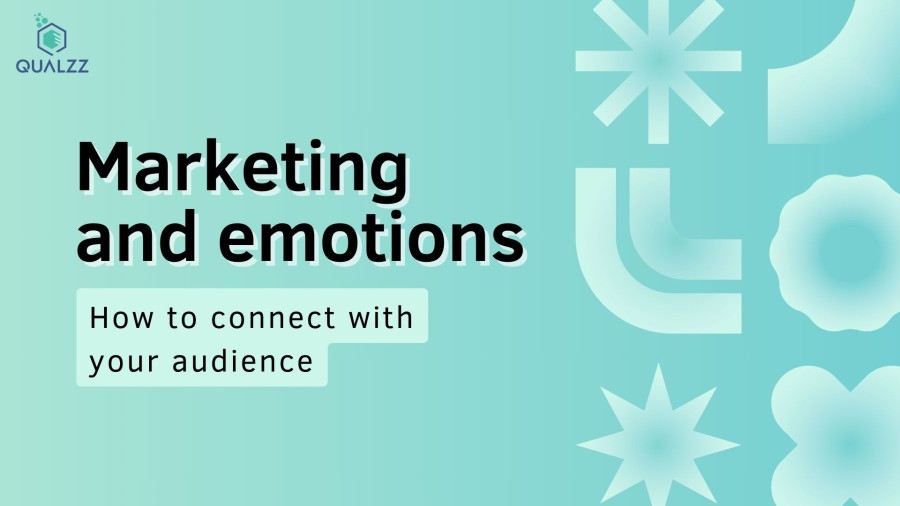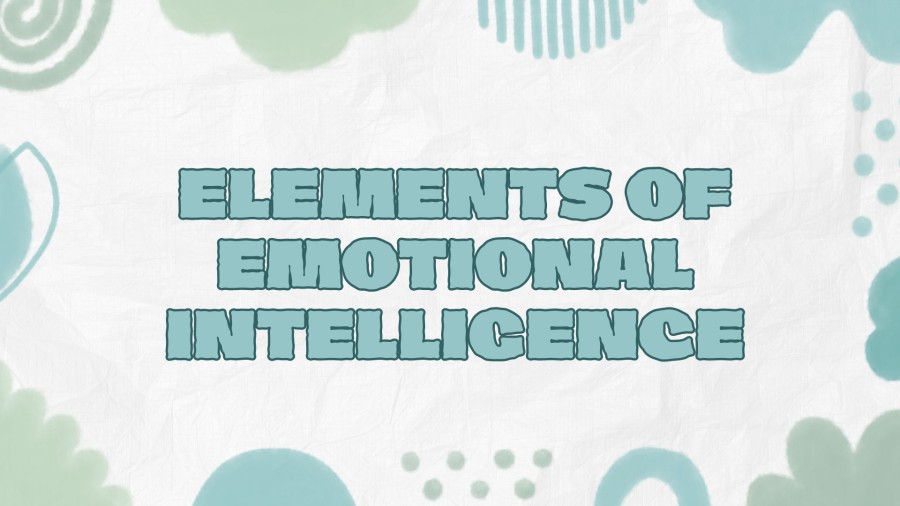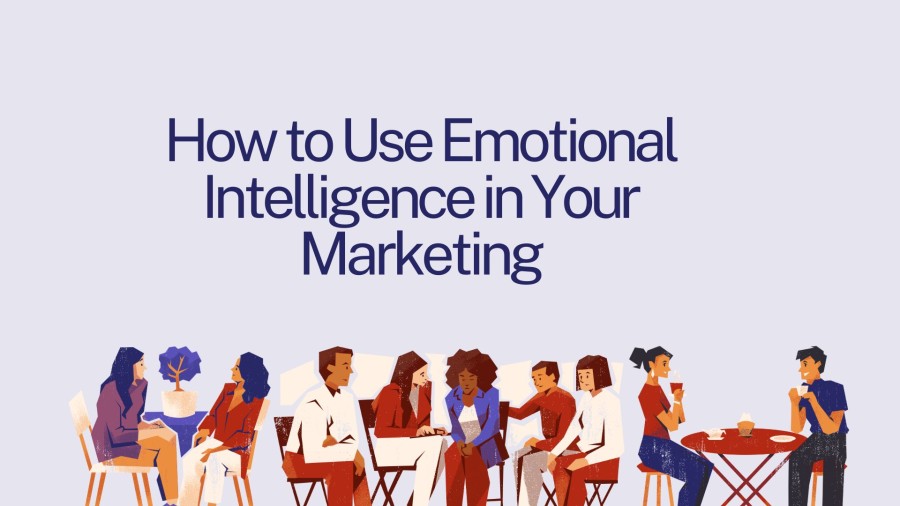
Emotional Intelligence – The Secret Weapon for Marketing Success
In a world where manufacturers and brands struggle to capture the attention of clients, emotional intelligence is one of the most powerful effective tools marketers can have at their disposal. It can make or break a brand. It’s an ability that requires practice, and a skill that can be learned by anyone.
The secret is to be aware of yourself and the emotions that influence your thoughts and actions. The more you become aware, the more you will be able to control your emotions and use them to influence positive behaviors. This also means understanding that you can have a negative reaction to someone’s actions without being mean or disrespectful.
You can cultivate your Emotional Intelligence by taking a second step back from a state of situation and asking yourself what you feel about it and why. This is a terrific workout to do with your buddies and circle of relatives to benefit insight into how you could relate higher with others, or with a therapist if you are suffering to manage your emotions and feelings.
Finally, you can also improve your ability to read other people’s feelings by being attuned to what they’re saying and how they are feeling. This means listening to your customers, peers and employees, and knowing how to respond in a thoughtful and empathetic way.
Numerous instruments could measure your stage of Emotional Intelligence, including the Mayer-Salovey-Caruso Emotional Intelligence Scale (MSCEIT), which turned into developed the usage of a capability-based version. It has precise inner consistency and presents correlations with different measures, proving its convergent validity.
Do you want to grow business, and sales, increase customer loyalty, and build stronger relationships at the same time?
Want to know how you can use emotional intelligence in your marketing?
So, in this content, we will talk about the important role of emotional intelligence in advertising and marketing and the way you could use it to force successful campaigns.
What is Emotional Intelligence in Marketing?
Emotional intelligence marketing is a way of using emotion to connects, engages, educates, convinces and retains your target audience. With the help of Emotional intelligence in marketing, you can easily understand your audience, and after that, you can target and build strong trustful relationships with them.
Emotional Intelligence (EI) in marketing refers to a brand’s ability to understand and manage emotions, both their own and those of their target audience. It goes beyond simply promoting products and includes creating genuine connections that go beyond transactions.
Here are some ways emotional intelligence can impact your marketing strategy:

Social Listening: EI (Emotional intelligence) helps marketers to know what people say about their product, services, brandon social media and other platforms. By giving feedback, they can make informed changes and adjust their strategies. For example, Wendy’s social marketing team gained popularity on Twitter with a sassy brand voice, which resonated with their audience.
Brand Image: Understanding consumer perceptions of your brand is important. Emotional intelligence helps marketers fine-tune their brand image based on feedback. For example, if your business seems to lack depth, it can make up for it by being more varied and informative.
Consumer Expectations: EQ enables marketers to align their brands with consumer expectations. By unlocking information about website visitors, marketers can gradually adjust to their audience and build stronger relationships.
Beyond Data and Needs: Emotional marketing goes beyond common data, problems, and needs of the audience. It aims to discover:
- Target user problems and how to deal with them.
- Emotions associated with a product or service.
- Desired emotional experience.
- Effective emotions for your marketing, tailored to your buyer persona.
- Emotions to avoid transmitting.
Psychological Roots: While emotional marketing is powerful, it requires solid research. Never assume the emotions and reactions of your audience without understanding them well.
Emotional intelligence allows marketers to create authentic connections, drive engagement, and build long-term brand loyalty. It’s about understanding the emotional drivers behind consumer decisions and using that insight to enhance marketing efforts. So, when crafting marketing strategies, remember the four pillars of emotional intelligence: brand consciousness, brand management, customer consciousness, and customer engagement.
Why Does Emotional Marketing Work So Well?
Four reasons emotional marketing is effective:
Immediate Purchases: Emotional marketing stimulates consumer preferences by manipulating emotions such as empathy, fear, and even fear. It can increase overall sales and improve instant sales.
Stronger Resonance: By understanding your audience’s pain points, your products and services will resonate strongly with them. Motional advertising facilitates you to connect with the right clients on a deeper level.
Empathy and Action: Brands that reveal emotional intelligence can expand empathy, price a top class for modern merchandise, deliver applicable advertising and marketing, and engage clients in a desired manner.
Increased Market Share: When a brand is in tune with its customers, it can gain market share by delivering emotionally resonant experiences.
Emotional marketing is more than just data. It is important to understand emotions and use them to build meaningful connections with your audience. Therefore, keep in mind incorporating emotional intelligence into your advertising and marketing approach to obtain higher results.
How to Use Emotional Intelligence in Your Marketing

Emotional intelligence (EQ) plays a key function in designing an powerful advertising and marketing. strategy. When we think about EQ in marketing, it’s more than just eliciting emotional responses or addressing pain points.
These few elements not only explain the effect of emotional intelligence on human life but also provide a good framework for incorporating emotional intelligence into your marketing and advertising strategy. Before you begin creating a marketing campaign, go through EQ system and answer the questions in every region. Once you have created your campaign, review your questions to Make sure your message reaches all areas.
We then expand on the few areas to provide tips on how to use emotional intelligence in marketing.
1. Self Awareness
Self-awareness is a powerful source.Self-attention facilitates you picking out your advantages, disadvantages, strengths and weaknesses, recognizing how your customers perceive your brand, and aligning your business goals with your customer’s emotional needs so that you can influence their feelings.
To approach marketing campaigns with confidence, you need to understand your very own emotions before processing the feelings of others.
It is natural to consciousness of the product or service you are advertising and marketing. But the humans you are advertising to care more approximately who you are than (and who they are) what you promote and sale.
Self-awareness is the first step to using EQ in your campaigns. Here are some questions to increase your brand awareness.
Knowing yourself is a combination of the way you want to be seen and how others see you. The best way to bridge this gap is to ask your customers.
Ask your existing clients why they like you and what you may enhance. You can use customer satisfaction surveys or set up a pop ups templates form on your website. Both customer satisfaction surveys and pop ups templates form for customer feedback collection are effective ways.
2. Articulate What Motivates Your Campaign
Every advertising and successful marketing campaign starts with a goal. When you create an aim, you are establishing your motive.
Want to generate additional leads? Growing your email list? How to reduce customer churn?
Whatever the goal is, the primary purpose of your advertising efforts is to attain that intention. But at what cost in your target market? By being sincere about what you are attempting to achieve, you could start to assume differently about what’s in it to your audience.
Emotionally intelligent campaigns are not necessarily imaginative and positive. It is not intended to earn a commission at all. It is about respecting the audience’s emotions and improving relationship control with the audience while achieving business desires and goals.
By Understanding your motivations allows you to delve deeper into self-awareness and build meaningful relationships. Once you know who you are and what you want, you can have an honest conversation about potential pitfalls to avoid.
3. Empathize With Your Audience
A good marketing campaign solves a problem or fills a need, but a great marketer should create value that betters people’s life. However, meeting a customer’s needs does not mean you are an empathetic marketer.
An awesome way to turn out to be more empathetic is by using an empathy mapping exercise. Social media, Email marketing advertising, and customer support service are three channels that enable you to invite human questions and survey huge audiences.
Empathy is not just a useful marketing way. It is essential to building strong business relationships with customers and a way of business success.
Empathy is the most essential part for a very good advertising plan. When you do it well, it helps you make real connections with people.
In Summary Emotional intelligence (EI) is truly the secret weapon of marketing success, enabling companies to build deeper relationships with their audiences and create impactful campaigns. Emotional marketing and advertising strategies help to connect with customers on an emotional stage.
